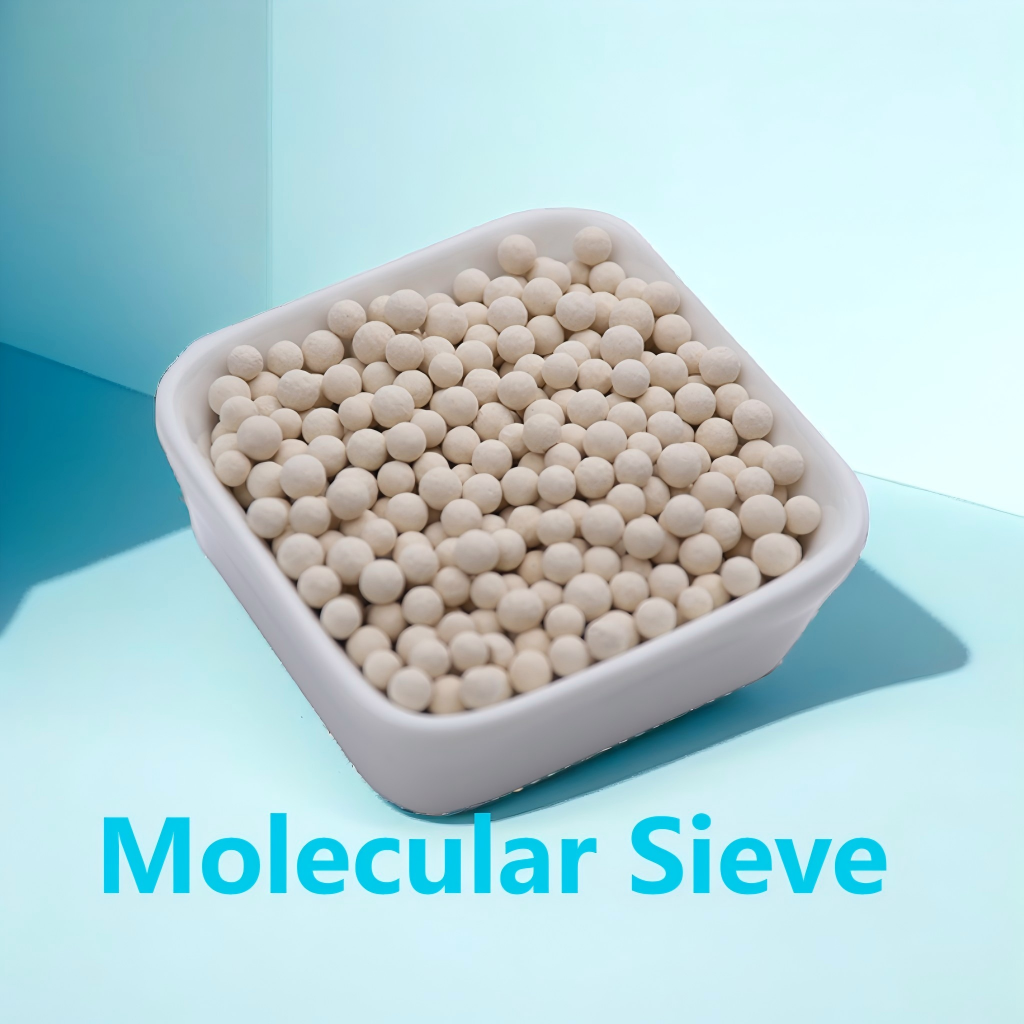Molecular sieves are porous materials, typically aluminosilicates, with uniformly sized micropores comparable to ordinary molecular dimensions. Their core capability is selective adsorption based on molecular size and polarity, which is why they are known as highly efficient industrial separation agents.
-
Adsorption and Drying: deep drying of gases and liquids
-
Desiccant dryers: Commonly used as the bed material packed inside dryers or desiccant air dryers to dry gases in compressed-air systems.
-
Natural gas dehydration and desulfurization: Before transport and liquefaction, remove water and acid gases such as hydrogen sulfide to prevent pipeline corrosion and freezing during liquefaction.
-
Refrigerant drying: In air conditioners and refrigerators, protect compressors and prevent ice crystal formation.
-
Industrial gas drying: Purification of hydrogen, oxygen, nitrogen, carbon dioxide, acetylene, and others.
-
Selective adsorption: gas separation
-
Producing oxygen and nitrogen from air: In pressure swing adsorption, PSA, units, leverage the higher adsorption affinity of nitrogen on molecular sieves compared with oxygen to produce high-purity oxygen or nitrogen.
-
Hydrogen purification and drying, adsorptive hydrogen storage.
-
Olefins separation in cracked petroleum gases: For example, remove trace water and carbon dioxide from ethylene and propylene streams.
-
Catalysis: solid catalysts and catalyst supports
-
Fluid catalytic cracking, FCC: The largest catalytic application for molecular sieves. Y-type zeolites serve as catalysts to crack heavy oils, such as vacuum gas oil, into more valuable light products like gasoline, diesel, and propylene.
-
Hydrocracking: Using modified molecular-sieve catalysts in the presence of hydrogen to convert heavy oils into lighter fractions, such as jet fuel and diesel.
-
Ion exchange: Applications in the detergent industry and in wastewater treatment.
-
Other emerging and specialized uses: Environmental control including NOx and SOx removal, as well as adsorption and recovery of VOCs.
Shanghai Jiuzhou is a high-tech enterprise that develops and manufactures molecular sieves and other adsorbents. The portfolio includes conventional 3A, 4A, 5A, and 13X molecular sieves, along with specialized grades for oxygen, nitrogen, hydrogen production, and desulfurization. Molecular sieves have evolved from traditional drying adsorbents into indispensable core materials across modern petrochemicals, energy, environment, and health fields.
Post time: Sep-15-2025


